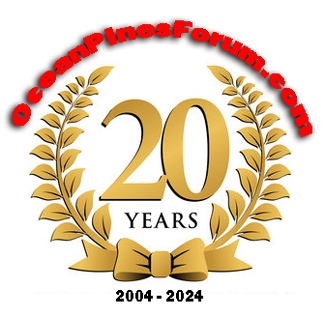message board home
 3/7/2024 4:44:55 PM
3/7/2024 4:44:55 PM
 Reply
or ReplyNewSubject
Reply
or ReplyNewSubject
Section 4: General Subject: HB 1515 Msg# 1200351
|
||||||
| Only $3.00 a week. That's an insignificant amount of money according to you. Why bother even posting it? | ||||||
|
|
||||||
|
For reference, the above message is a reply to a message where: Maryland Chamber of Comerce (not in Ocean Pines Unfavorable House Bill 1628—Sales and Use Tax— Rate Reduction and Services House Ways & Means Monday, March 2, 2020 Dear Chairwoman Kaiser and Members of the Committee: Founded in 1968, the Maryland Chamber of Commerce is the leading voice for business in Maryland. We are a statewide coalition of more than 4,500 members and federated partners, and we work to develop and promote strong public policy that ensures sustained economic growth for Maryland businesses, employees and families. House Bill 1628 would lower the sales tax from 6% to 5% but would expand it to everyday services including legal services, realtor services, home improvement, auto services—just to name a few. Though a fiscal note has not been released as of this writing, the bill sponsors maintain that this legislation would result in $2.6 billion in additional revenue for the State, and that an average Maryland family earning $80,000 per year would pay approximately $3 more per week under the expanded sales tax proposal. We believe that taxing all services is bad public policy for the following reasons: A tax on services is discriminatory against small and fledgling businesses. Small businesses rely on outside services (legal, accounting, etc.) while larger companies can utilize in-house expertise for these newly taxable services at no additional cost. As a result, small and start-up businesses will incur additional costs just to operate in the State. This legislation will result in pyramiding taxes. Taxing services increases the potential for services and goods to be taxed more than once, which leads to higher consumer costs. A tax on services puts Maryland businesses at a competitive disadvantage relative to other states. States with service taxes are at a disadvantage when it comes to competing with states that don’t tax services. HB 1628 would discourage the use of Maryland services, as well as discourage companies seeking to expand or relocate here. Note that none of our competitor states in the region broadly tax services. In fact, only Hawaii, New Mexico and South Dakota do. Taxing services will disproportionately affect those who can least afford it. The tax rate is the same for all consumers, no matter their income. If more services become taxable, a larger portion of the disposable income of lower-income individuals than that of higher-income individuals will go toward sales taxes. Implementation of a tax on services presents a tremendous administrative burden, particularly for small business owners. Service providers, many of whom are independent contractors or small business owners, will now have to face a new administrative burden. As the Maryland Association of Certified Public Accountants (CPAs) has pointed out, other states like Florida and Michigan have tried to tax a broad range of services only to quickly repeal them due to the complexity of administration, among other reasons. A tax on services will be difficult to enforce due to geographic challenges. For example, if an accountant is serving a client who owns gas stations in Maryland, Virginia and Washington, D.C., “it is unclear what state the service is being delivered from and what state the service is delivered to,” said Tom Hood, chief executive of the Maryland Association of CPAs, in the Baltimore Sun. There is widespread opposition to this bill from many segments of the business community. On Monday, March 2, 2020, the Maryland Chamber of Commerce was joined by the following business organizations to express our strong opposition to House Bill 1628 and its negative potential impact on our state’s economy: · National Federation of Independent Business (NFIB) · Maryland Retailers Association (MRA) · Maryland Motor Truck Association (MMTA) · Maryland REALTORS® · American Council of Engineering Companies/Maryland (ACEC/MD) · Maryland Association of Certified Public Accountants (MACPA) · Apartment & Office Building Association of Metropolitan Washington (AOBA) · Maryland State Bar Association (MSBA) · NAIOP—Commercial Real Estate Development Association, Maryland Chapter · Mid-Atlantic Petroleum Distributors Association (MAPDA) · Washington, Maryland, Delaware Service Station and Automotive Repair Association (WMDA/CAR) · Maryland Building Industry Association · Maryland Society of Accounting & Tax Professionals (MSATP) · Maryland Associated General Contractors · Independent Electrical Contractors, Chesapeake (IEC) · Associated Builders and Contractors (ABC) · Maryland Hotel Lodging Association (MHLA) · AAA Mid-Atlantic · Maryland Nursery, Landscape and Greenhouse Association (MNLGA) · American Property Casualty Insurance Association · Maryland Bankers Association · Maryland Nursery, Landscape, and Greenhouse Association · Maryland Association of Mutual Insurance Companies (MAMIC) · Insurance Agents and Brokers of Maryland (IA&B) · Building Owners and Managers of Greater Baltimore (BOMA) · Maryland Association of Health Underwriters (MAHU) · National Association of Insurance and Financial Advisors of Maryland (NAIFA MD) · Insured Retirement Institute (APCIA) Representatives from the small business community are equally as concerned about the impact that this would have on their ability to create jobs, grow and thrive in Maryland. Attached to this testimony is a letter from local and county chambers of commerce, as well as many small business owners, expressing their opposition to HB 1628. For these reasons, the Maryland Chamber of Commerce respectfully requests an Unfavorable Report on House Bill 1628. |

| Calendar |
|
6/28/2025 - 9:00 A.M. |
|
7/26/2025 - 9:00 A.M. |
|
8/9/2025 - 9:00 A.M. |



